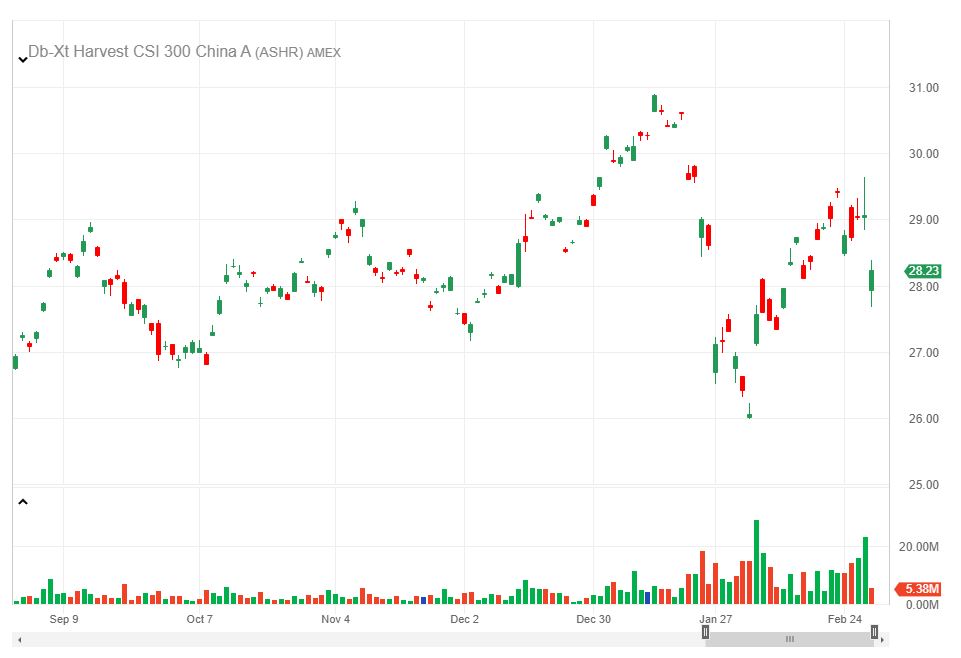It’s been a hectic week for the market, and while easy to put a focus on the lows, the positives come in the form of ETFs functioning they way they were designed to in a variety of scenarios. Yes, the uncertainty of the Coronavirus has made an impact, but ETF Trends spoke with strategists from DWS about one of their flagship products and the effects of the time.
The Xtrackers Harvest CSI 300 China A-Shares ETF(ASHR) has remained a highlight for DWS. As Rob Bush, Head of U.S. Product Strategy for DWS, explains, “ASHR, as the flagship product, continues to trade as normal, as it always has on tight spreads. People have been able to use this to express a view on China.”
As a reminder, ASHR seeks investment results that generally correspond to the performance, before fees and expenses, of the CSI 300 Index. With what is going on currently, DWS is in a position to speak on not only the success of its construction and how it has functioned amid downward trends but could have played like a fine alternative for those trading through other means.
As Bush notes, “When the Chinese market opened after a week, it was down 7-8%, but not a one-day move. This was a gradual shift over the course of a week, which could have been traded using ASHR.”
What’s Working Best for ASHR
Additionally, with ASHR being the go-to for expressing thoughts on China even when the market is shut, it shows just what a success the fund has been as a tactical opportunity for those trying to stay ahead of the current issues, due to the continued reactions concerning the Coronavirus. “There is an absence of market around ASHR,” Bush states, which has worked in its favor.
Given the current ETF Ecosystem, DWS has managed to stand out in being a big liquidity provider in China, even as things stand as a bit of a risk-off moment. Part of the reasoning was put plainly by Luke Oliver, Head of U.S. ETF Capital Markets for Xtrackers. He notes how the market has been inefficient, as it was charging too much. Meanwhile, DWS was able to deliver the same product with the same quality features, leading to the same spreads, all at a lower price.
Oliver continues, “Can these new issuers who are coming in and giving things way actually do that? And are the bigger firms like Vanguard using their existing scale and profitability to bring prices down too low, killing competition as a result?”
Hopefully, there’s a way to learn from all of this, and it’s not handled the hard way. Perhaps regulators need to do something. Still, investors need to make sure to be educated in what they’re doing when they’re switching to these low cost, unsupported funds. As it stands, ASHR seems to be in the position of how to handle things properly.
For more market trends, visit ETF Trends.

